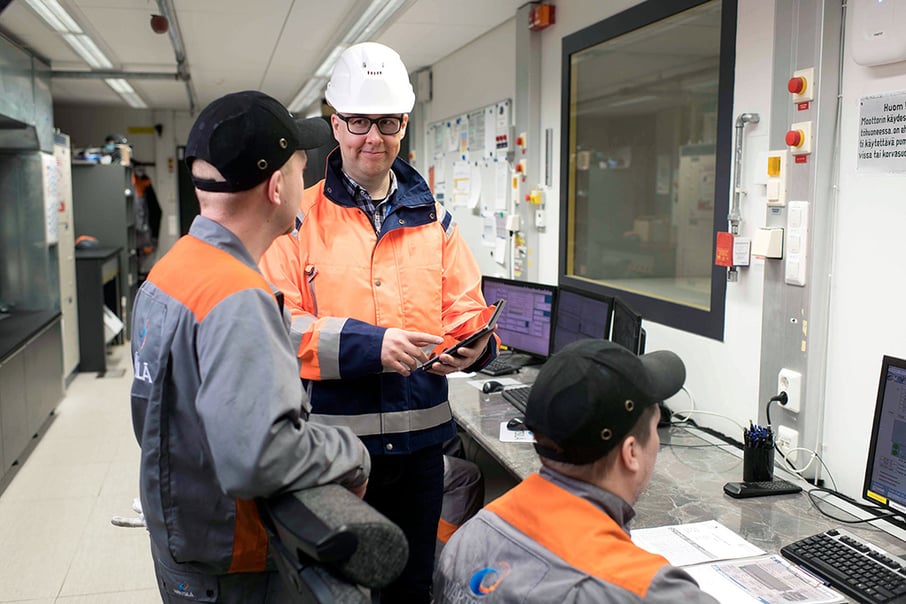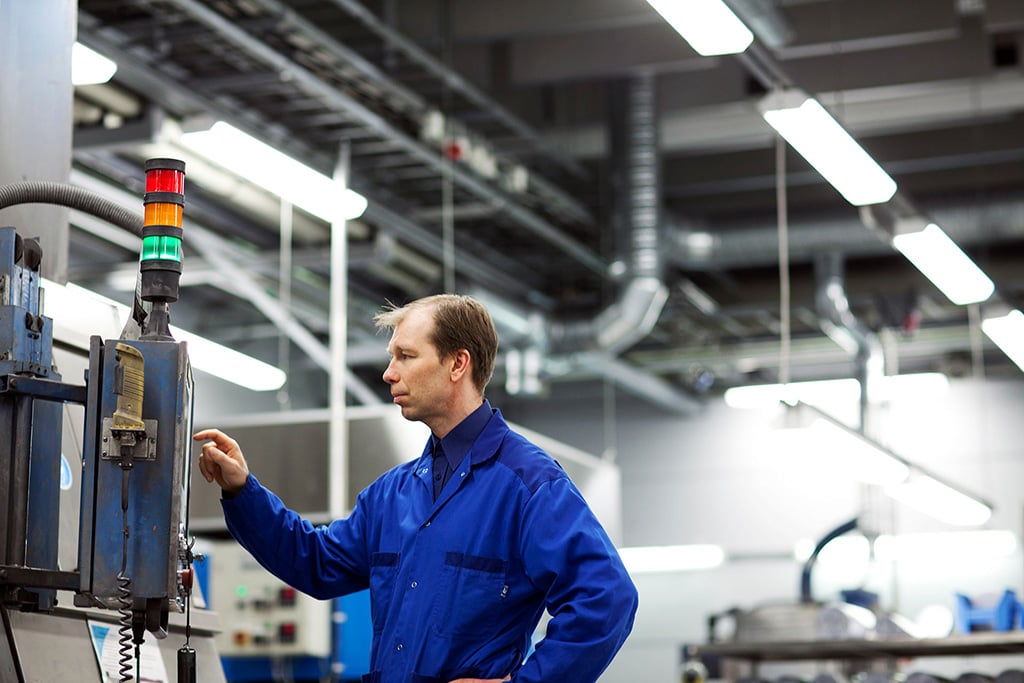 In industrial and production environments, it is very typical that processes, roles and responsibilities are very accurately defined.
In industrial and production environments, it is very typical that processes, roles and responsibilities are very accurately defined.
This article has been updated on 11/2025.
Outsourcing IT services is a known and easy alternative for the management of equipment, software licenses and information security for many service providers regardless of the branch of business. For some reason, however, the industrial IT environment is not perceived as a part of the actual IT infrastructure but, unfortunately, often plays a marginal role. Why is it so? In this article, I present some of my views of this topic.
Putting processes and roles in order
In industrial and production environments, it is very typical that processes, roles and responsibilities are very accurately defined. For example, the production manager is responsible for operational production which in turn functions according to a very accurately defined process.
On the other hand, as regards the production IT environment, it is often the case that responsibilities have not been defined and threats not identified because the IT infrastructure is not perceived as a part of this process. In fact, industrial IT is often separated as an entity of its own, being an enabler of production, not an actual performer. Industrial IT consists of equipment and software that can equally fail and cause major hindrances to the smooth operation of production.
Take a production plant as an example where a production machine is monitored by a maintenance system transferring data in an orthodox manner to an ERP system to be utilized by others. The production machine itself is controlled by a computer, but the possibility of failure or breakdown of this device has not been considered in the production process. If the computer crashes, the production will also stop and, at worst, repair measures may cause a production break of several hours.
What happens if maintenance of production IT infrastructure is neglected?

If the performance of production critical equipment or software is not monitored, risks grow greater each day.
Why a clear and comprehensive model like the production process has typically not been created for the maintenance of production environments? The root cause is often that its criticality has not been fully understood – until something happens. This is why it is often buried and sandwiched between IT and production. I have once heard even the following comment: “I don’t even want to know what would happen if it fell apart!”.
To avoid the need to think of this possibility, we must have a continuity plan and a process. In other words, if something should happen, how can we repair or replace the failed equipment or software as soon as possible to keep the production break as short as possible – or, at best, to completely prevent it in advance.
If the performance of production critical equipment or software is not monitored, risks grow greater each day. For example, servers will not simply work forever, so their regular check and replacement, as needed, must be under someone’s responsibility. If production critical areas have not been identified, production could be stopped at a suitable point of the chain by an individual small factor that seems trivial compared to the whole.
When considering the maintenance needs of the production environment, the following questions should be answered:
- Who is responsible for the performance of production?
- Who is responsible for the performance of the IT environment?
- How critical is the production IT environment and what are its most critical factors?
- Which equipment and software are critical for efficient performance and reliability of production?
- Have risks related to the production IT environment been assessed? What efforts are made to avoid these risks and how have they been prepared for?
- How long a production stop can your business take?
Outsourcing the maintenance of the production IT environment guarantees operational continuity
When a partner is responsible for the maintenance of the IT infrastructure in the production environment, the possibility of equipment failures and other production critical issues has been taken into account and there is a process in place for appropriate preparedness. The partner may be partly or completely responsible for the customer’s IT production environment and its operational reliability. In this way, it is also notably faster to outline the actual problem.
In fact, maintenance services consist, to a very large extent, of risk management and minimization of all possible disturbances. This service also guarantees that all software is up-to-date and the newest and safest versions are used in production.
Let us take yet another example. A company has a system for supply chain management which requires to operate, in addition to a server, a workstation or other device for operating the system. In this case, the IT maintenance service can cover appropriate system operation without production breaks. Thus, the partner is responsible for the information security management of servers and workstations and monitoring of the status and performance data of equipment and software. In addition, thanks to the outsourced service, there is a plan in place in case of a failure to guarantee the continuity of production.
In fact, separation of production from the rest of operations is one of the most important factors for the operational reliability and risk management of production environments.
In larger settings, maintenance can be very accurately defined, for example, to apply to a production network that is completely separate from the other functions. In fact, separation of production from the rest of operations is one of the most important factors for the operational reliability and risk management of production environments.
I will illustrate this with the following example. At a production plant, personnel is typically present in the offices between 8 am and 4 pm, whereas production continues round the clock with three-shift operation. Both office and production equipment operate in the same network. Such an arrangement involves a great deal of risks related to information security and reliability. For example, a computer of an office employee may be infected by a virus, which the employee does not notice but returns home without worries. At worst, the attack may also extend to the side of production and completely stop production.
Would you like to get more information?
Today, almost each device, software application or other individual IT component can also be remotely monitored and taken over, if necessary. Explore our comprehensive range of IT services here. We keep your daily business running smooth and secure your production by taking care of your equipment and systems.

Tuomas Lassila
I am responsible for Pinja's ICT business. My free time is spent with family, friends and hobbies.
Back to the Pinja Blog
Categories
- Career at Pinja (68)
- Manufacturing (46)
- Knowledge Management (45)
- Production Development (44)
- Software Partnership & Tools (42)
- Sustainability (37)
- Wood and Forestry (37)
- Bioenergy and Recycling (29)
- IT Support and Outsourcing (24)
- Ecommerce (23)
- Maintenance (22)
- Artificial Intelligence and Machine Learning (15)
- Public Services (9)
- Compliance (1)